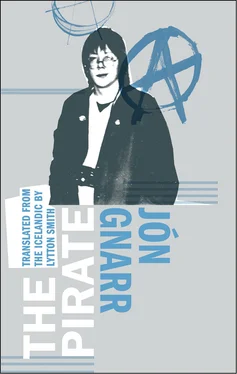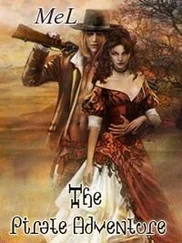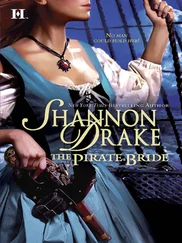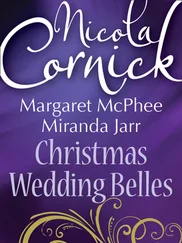I soon became aware that I had to get a job in order to have a source of income. I couldn’t keep on with this drama with my dad. I had to have some income to be able to buy punk cards and cigarettes and the like. Maybe also to be able to go into a store and buy a Coke and hang out. But there weren’t many opportunities for young adults. At first, I tried selling newspapers and decided to try The Daily Scene . I went up to Þverholt and got a blue bag with newspapers in it. Then I walked into town and tried to sell them to people. I soon found out that I was a pretty bad salesman. It didn’t help that I was both shy and withdrawn. People also maybe felt it was weird that a punk was selling the Scene . The kids who were selling papers seemed well-behaved, resourceful salesmen. When they were finished selling all their papers, they went back up to Þverholt and refilled their bags. But I was not resourceful. I found sales pitches uncomfortable and awkward. I tried to bump into people and ask whether they wanted to buy the Scene but got nothing. They had no interest in buying off me. Some said they had already bought a newspaper from someone else. I then walked downtown, where there were more people but also the most severe competition. There were many other newspaper sellers, most of them older than me, who either stood up on the steps or just on the street with one, and sometimes two, newspaper bags on their shoulders, hollering:
“ Day-ily Sce-ene! The Day-ily Sce-ene .”
There were enterprising, witty sellers who shouted things from the front page:
“Government toppled!”
“Read all about it in The Day-ily Sce-ene .”
I didn’t have the confidence to cry out like that, so I just doddled about and muttered to people who walked past:
“Will you buy the Scene ?”
The older boys were quick to spot me and said:
“Piss off. You shouldn’t be here.”
I muttered a protest, saying:
“I’m allowed to be here, I’m selling here.”
“No, this is a private area. Piss off!”
Someone grabbed me by the neck and pushed me away.
“Piss off, idiot!”
I tried to find somewhere the older kids weren’t at, but then it would turn out there weren’t many people there. I strolled about like this and did my utmost not to get in the way of other sellers, especially Óli. Óli was mentally disabled, a notorious newspaper seller who could be a really mean character. I had often seen Óli and witnessed firsthand how if someone was trying to sell papers near him, then he simply attacked the person. Even the punks were afraid of Óli the Newspaper Seller. When I was done walking around with the pile of newspapers, I just gave up and walked back up to Þverholt with a full bag. I didn’t sell a single paper. I clearly had no future in newspapers sales and decided never to do it again. It was miserable.
Then I met a kid who was selling Red Cross lottery tickets. It seemed a profitable business. It was the first generation of Red Cross lottery tickets, the ancestor of the scratch card. It was just a strip of paper folded several times and fastened together at one end. You bought the ticket, tore the strips at the ends, and flipped the paper apart. Then it usually said inside: “Sorry, Not a Winner. Thank you for supporting the Red Cross.” I immediately saw an opportunity in this. My acquaintance who was selling tickets said there would be much more money in it than in newspapers. And it would also be easier: for instance, the tickets were much lighter than the newspapers, and in addition, one could sell lottery tickets, which you would otherwise be prohibited from selling, because it was for a good cause. You weren’t just making money but were supporting a good cause. I immediately felt I would be a much better Red Cross salesman than a newspaper guy, so I got an address off my friend and went and talked to some woman in Fossvogs who was in charge of it all, and she gave me 100 tickets to start with. I went with the tickets to a house, knocked, and said:
“Can I offer you a chance to buy lottery tickets for the Red Cross?”
Unlike with the newspapers, I managed to sell them! People really bought tickets from me. I tried as far as possible to be pitiful and wretched and get people to feel sorry for me. I was a little, odd, ginger kid with glasses who was somewhat weird. People opened their doors with a questioning, surprised expression.
“Can I offer you a chance to buy lottery tickets for the Red Cross?” I muttered, miserably.
Then people would get an expression of pity, especially women. People thought maybe I was with the Red Cross somehow or supported by the Red Cross, even a bit special, and so they obviously had difficulty saying no, unlike with the Scene .
I did well and earned a percentage of every ticket sold and felt that I had found a good line of work. For the first time in my life, I had money in my hands and felt I’d begun to make a little bit of a living. After my first sales, I went up to the shop on the corner of Osland and Bústaðavegur which was called Ingaskýli. I bought a Coke and some licorice and gumballs and punk cards and even a packet of fizzy drink powder. Dad would definitely have started weeping profusely if he had seen me spend this much money on such stuff. But I didn’t give a damn. It was my money that I’d worked for, and I was in charge of how I got rid of it.
My advancement as a Red Cross salesman was unexpected: I swiftly became one of the most successful sales representatives. It didn’t take long before I became a kind of wholesaler and started taking a box of one thousand tickets, which I shovelled out without delay. I found the Red Cross tickets a fascinating idea and became quite excited about it, so now and then I bought a ticket myself. The tickets were arranged vertically in a cardboard box with the edges facing up. When I ran my hand over them, I’d feel like I must have found the winning ticket, as if it was somehow different than the losing ones. But I never got any prizes, and it didn’t matter how strong the feeling was or how much the tickets shouted at me “buy me, buy me.” When I ripped them open, I always found inside “Sorry, Not a Winner.” I scrutinized the tickets carefully to see if there was any possible difference between winning tickets and the rest. They were, of course, rather primitive scratch tickets which were actually — it’s true — open at one end, but you couldn’t see anything even when you peeked in the opening. Then it occurred to me to wonder if it would be possible to see through them. I went into the storage closet where the light bulbs were kept and found a seventy-five-watt candle bulb that I put in a lamp and took with me into my room. I held the bulb up to the opening and turned it on. The font was faint, but I could discern the winning tickets by where the graphics of the lettering was different from the non-winning tickets. There was a clear difference between “Sorry, Not a Winner” and “Congratulations! You have won a Box of Chocolates from Nóa Síríus.” After this, I dutifully illuminated all the tickets I had to sell and found a few that were winners. They weren’t remarkable prizes, mostly gift baskets and boxes of candy, though mostly just candy. But over time I got several strange prizes, such as a tow hitch, which was some kind of rope system for pulling cars. It was an orange plastic tube, and out of each end you could pull iron hooks on ropes, and if you let go of them they ran back inside the tube. It was a really handy and neat tool to have in the trunk of a car. I went and got the prizes regularly from the Red Cross headquarters. They didn’t know I was a sales guy and just thought I was some amazingly lucky Red Cross supporter. I became the number one salesman — selling lottery tickets had played into my hands, an unprecedented opportunity. I got to have a sales table in Glæsibæ at Christmas. My own sales table! I sat snugly next to a large sign with the logo of the Red Cross and doled out winless tickets that I’d already shone through.
Читать дальше











